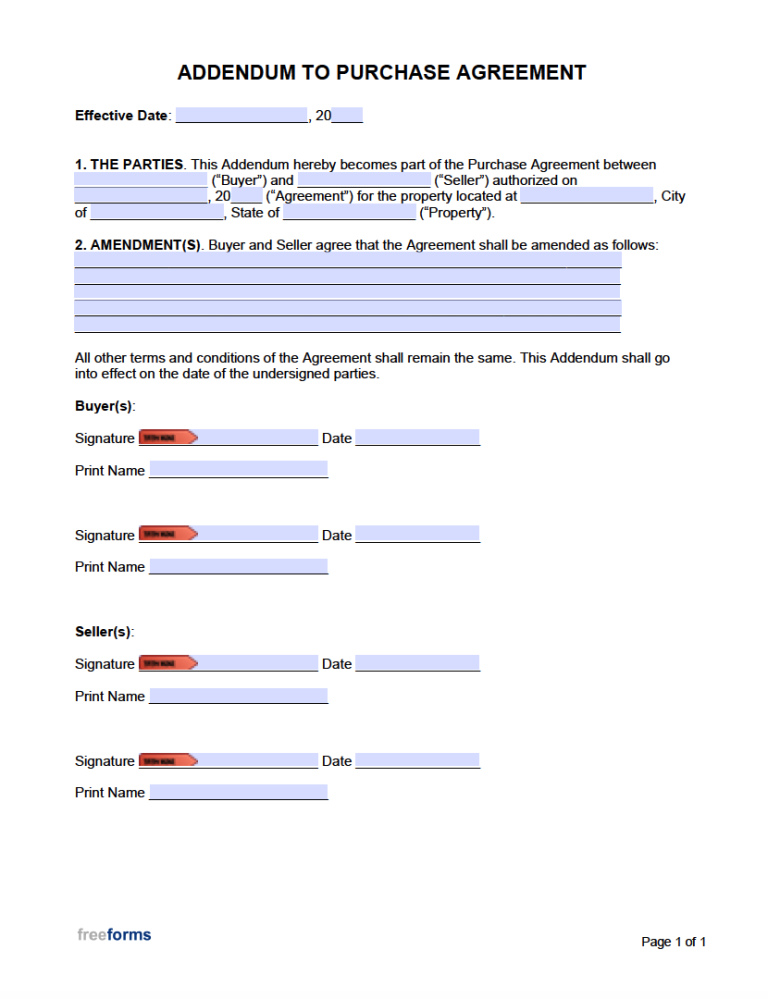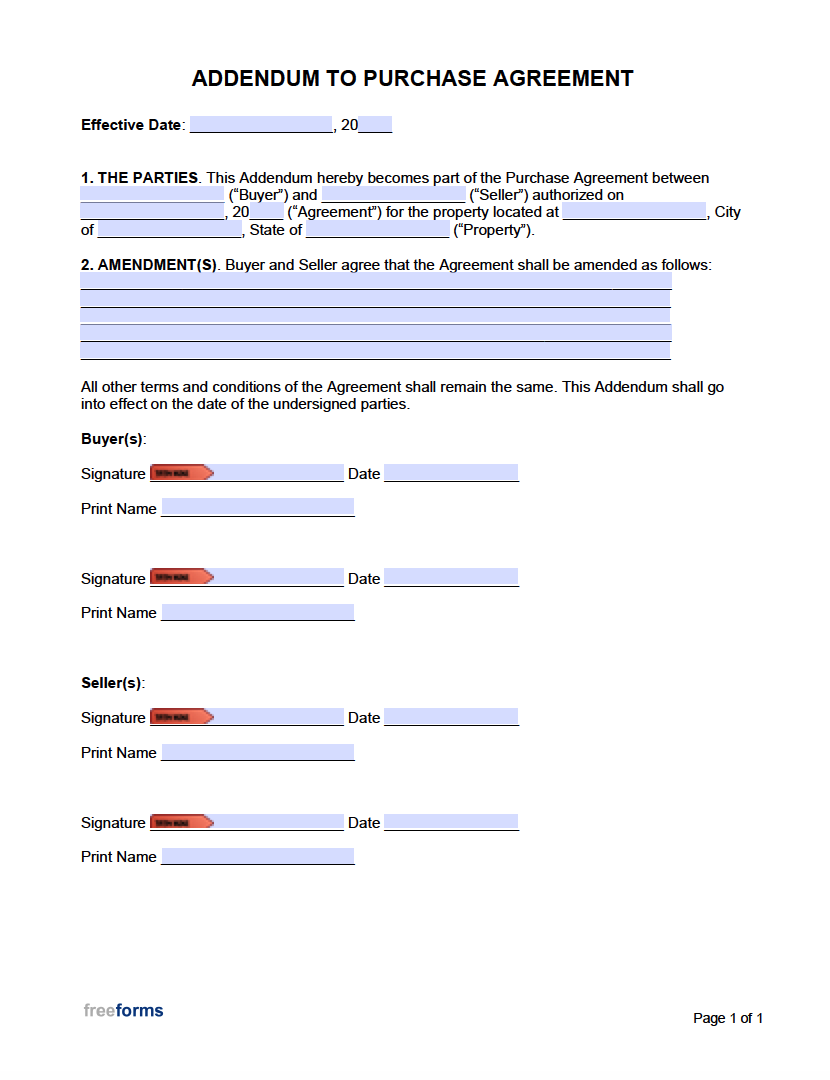Residential Purchase Agreement – A contract used for the purpose of transferring ownership of a home from one party to another in exchange for a monetary payment.
Types of Addenda
Closing Date Extension Addendum – If all the participants of a sale involving residential real estate agree to extend the date in which the closing will occur, this addendum can help modify the terms of the contract.
Condominium Association Addendum – Property transactions concerning the sale of a condominium unit that is part of a common-interest community will typically require that this addendum be executed along with the attachment of the association’s governing documents.
Earnest Money Receipt – When a buyer delivers payment for the earnest money deposit, they will usually request a receipt from the seller that confirms that the funds have been received.
Earnest Money Release – Depending on how the purchase agreement was terminated, this form allows users to indicate which party is entitled to the earnest money deposit (typically the buyer) and requires signatures from each side of the transaction.
Escrow Holdback Agreement Addendum – If the transaction requires the seller to fulfill certain obligations beyond the time of closing, this agreement enables the buyer to set aside a specific amount of money that will be held in escrow after closing. Once the seller has satisfied the agreed-upon conditions, they may then receive the remaining funds.
Estoppel Certificate Addendum – Used during the sale of a rental property, this addendum requires the seller to disclose the terms of any leases currently operating on the property.
Inspection Contingency Addendum – Utilized for the vast majority of all real estate transactions, this addendum encompasses a contingency that requires an inspection to be administered by a third (3rd) party. If the results of the inspection indicate a significant issue, the buyer has the right to walk away from the sale or further negotiate the terms of the agreement.
Owner (Seller) Financing Addendum – Employed if the seller offers to supply the buyer with financing as opposed to a bank.
Short Sale Addendum – If the home is being sold for less than the balance on the mortgage, this addendum may be implemented if the lender agrees.
Termination Letter to Purchase Agreement – Executed when both parties agree to terminate the terms of the purchase agreement and legally back out of the contract.
Third (3rd) Party Financing Addendum – This document allows the buyer to disclose the terms of the loan that they require to purchase the property. If they are unable to secure the necessary financing, the purchase agreement is automatically terminated.
Types of Disclosures
Lead-Based Paint Addendum (42 U.S. Code § 4852d) – Needed for every residential real estate transaction pertaining to property that was constructed before 1978, this federally mandated disclosure must be distributed to the purchaser(s) prior to closing.
Property Disclosure Statement – Compulsory for most sales, this form requires the seller to disclose any known adverse defects contained within the property prior to the time of sale. Once completed, it must be delivered to the buyer within a designated period of time.



